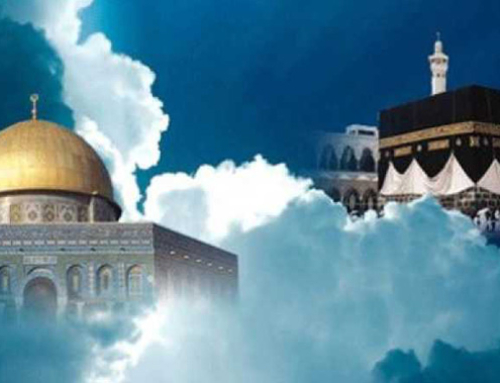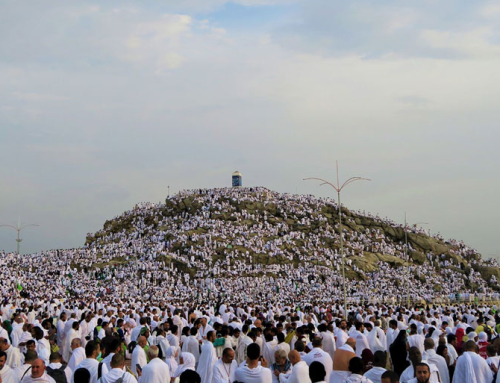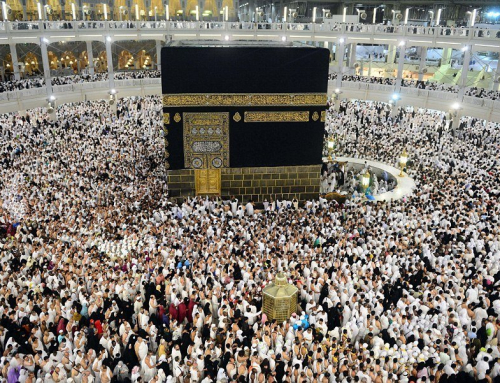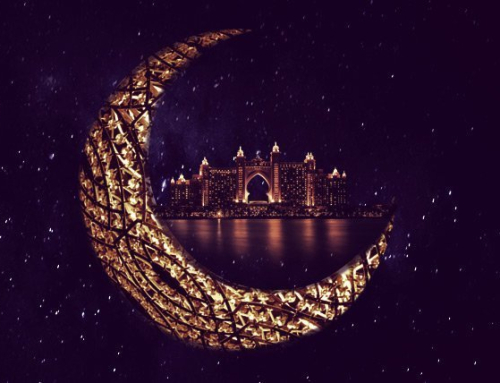Yassine Hicham
February 6, 2018
If a group of people were asked what the most important issue for mankind was today, different people would have different answers. Some would say the spread of nuclear weapons, some, the population explosion, while others might say that the production and distribution of wealth were of paramount importance. Such diversity of opinion shows that people in general do not properly recognize what they themselves are. If they did, they would all agree that the most critical issue facing mankind was man’s disregard of his real nature, and his persistence in ignoring the inescapable fact that one day he must die, and be called to account before his Maker. If we were to become aware of the reality of existence, it would be to the afterlife rather than to this world that we would direct our attention.
Today, most people do believe in God and in the afterworld. It is not as if they deny these things; but their actions bear no relation to their belief. In practice, all that people are concerned about is worldly success. If our research laboratories were one day to declare that the earth’s gravitational pull had ceased to exist, and that the planet was being pulled towards the sun at a speed of 6,000 m.p.h., then panic would strike the whole world, for such news would imply that within a few weeks all life would be obliterated from the face of the earth.
This globe, however, is perpetually facing a peril much greater than this, yet no one feels the need to become anxious about it. What is this peril? It is the peril of the Last Day which has been destined for the world since the creation of the universe and towards which we are careering at a reckless speed. As an article of faith, most of us accept this reality, but there are few indeed who actually feel compelled to give it serious thought.
If you stand in a busy shopping-center during the evening rush-hour and observe what people are hurrying towards, you will realize what today’s human-being has chosen as his fundamental issue. Why do you think there is an endless stream of traffic in the streets? Why has the merchant decorated his shop? Where are the crowds of people coming from and going to? What is the main topic of people’s conversation and the true purpose of their meetings with one another? What interests them most? To what use are their finest talents and resources put? What has this exuberant person obtained that has thrilled him so, and what has that dejected face been deprived of that it has so stricken a look? What have people taken with them, from their homes, and what do they intend to return with? If you can answer these questions, — judging from the nature of people’s preoccupations, the sounds they emit, their agitation and quiescence — you will also be able to deduce exactly what it is that mankind has chosen to base his life on, and what he is endeavoring to achieve. It is plain for all to see from the constant procession of people to and from the towns and their continuous comings and goings on the crowded streets that today’s human being is simply running after the satisfaction of his own desires. It is the world rather than the afterlife which he is eager to obtain. His happiness hinges on the fulfillment of his worldly ambitions, while his grief stems from the fact that this seemingly eludes him. The everyday concept of success is the immediate acquisition of commodities, and the enjoyment of leisure and popular acclaim, while failure, to them, means to be deprived of these things. This is what the whole of humanity is chasing after. No one cares about tomorrow; everyone becomes frenetic about getting his share now, today, this very minute.
This state of affairs is prevalent not only in our big cities but even in the tiniest human settlements; wherever one goes, people seem to be similarly obsessed. Male and female, rich and poor, old and young, urbane and rustic, even the religious and irreligious—all are running in this same direction. What man is most pre-occupied with is grabbing whatever he can in this world. This is what he considers to be worthwhile and this is what he spends his precious time and talents on. This is what obsesses him night and day. No sacrifice, however dubious in character is too great if it brings him these things. He is even ready to sacrifice his faith and his conscience for them at the altar of worldly gain. His struggle is for worldly ends alone, and he cares not what this struggle entails. No compromise is too base for him.
Every success gained in this way, however, is trivial and mundane and will be of no avail in the afterlife. He who is concerned with consolidation of his worldly position at the expense of the afterlife is like the young man who does not care to save up for his old age. Eventually the time comes when his limbs fail him and he becomes unfit for further toil. Suddenly he realizes his predicament: he is without food, clothes and shelter. He is no longer able to provide for himself. In rags, he lies down in despair in the shade of some wall where the dogs bark at him and boys throw stones. Though we witness with our own eyes the plight of those who have not ‘saved up’ for the afterlife, we are still not galvanized into action. All of us are too concerned with the consolidation of our present positions. No one gives a thought of tomorrow.















